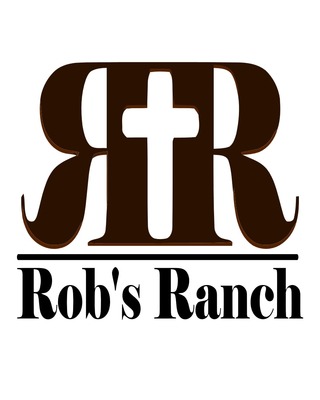Amphetamine Addiction Centers Glen Lyon PA
Home
Amphetamine Addiction Centers Glen Lyon PA Resources and Information
Amphetamine Addiction Centers Glen Lyon PA
When does drug use become drug abuse or addiction? These programs may be long, but when you are receiving free treatment for addiction there is always a cost. Behavioral therapy will involve individual and group counseling sessions designed to include personal interaction, while addressing a variety of developmental and personal issues.
According to the National Council on Alcoholism and Drug Dependence, the following are signs that an individual may have a drug abuse problem and should seek help: Using drugs in higher doses, using more often, or using for longer than intended; not being able to control use No longer participating in activities that used to be enjoyable Struggling with relationships due to drug use Being unable to keep up with responsibilities at work, school, or home Hiding substance use from others Running out of prescription drugs faster than expected or stealing drugs from others In addition, if the person feels unable to function without using the substance, or experiences withdrawal symptoms when drug use is stopped, drug abuse or addiction may be present. Why You Should Not Wait Whether you are seeking help for yourself or for a loved one you should not wait to capture an opportunity to get that help and as soon as possible. The longer you wait, the harder detox and rehab will be because your addiction only gets worse as each day passes. The phone advisor is specially instructed to maintain the confidentiality of the caller, and therefore one can call them without the fear of being exposed to questions and judgment.
More Details Around Msir Detox Clinic

Here are Some Even more Resources on Tasc Drug Rehab Glen Lyon PA
When we feel that we have hit our rock bottom it is at this time we feel like we should make some changes. Talk to your child about underlying issues. Drug use can be the result of other problems. The physical effects of marijuana and synthetic cannabinoids include elevated blood pressure, red eyes, and increased blood pressure. If 50 % of the clients leave before the completion of the program, then the statistics are looking good for the center.
Right here are Some Even more Information on Tasc Drug Rehab
They The recovery processes followed in Christian rehab centers involve reading scriptures, attending church, going through individual, group and pastoral counseling, undergoing the 12-step program and more. Medication like methadone and buprenorphine can be used to treat addiction to prescription opiates, and behavioral therapies can be used to treat addiction to prescription stimulants, benzodiazepines, and other drugs.[6] Types of behavioral therapy include: Cognitive-behavioral therapy, which seeks to help patients to recognize, avoid and cope with situations in which they are most likely to relapse. This will make it easier to work out visits into your schedule. However, there is no other perfect time to reach out than the time right now.
Right here are Some More Resources on Tasc Drug Rehab Glen Lyon PA
They may also no longer pay much attention to their appearance, or may neglect their health. The longer the program is, does not usually affect the outcome of treatment, once you pass the 90-day mark. At that point, it is up to the individual to apply what they have learned and move forward with life. According to NSDUH, the majority of people who get drug treatment cover at least part of the cost through health insurance. Get the Special Treatment from Drug Rehab Center What makes us one of the top Rehabs in Chicago is our ever-evolving treatment program that is adapted to the needs of the patient. Early detection and diagnosis of a potential drug addiction problem is critical. Their three-fold mission is to advance prevention, recovery, and wellness through healthy lifestyles for individuals, families, and the whole community. To best suit the needs of each patient, we offer a wide variety of faith-based treatment services and multimodal therapies, including: Safe, medically-supervised drug and alcohol detox Pastoral counseling Group addiction counseling One-on-one therapy Dual diagnosis treatment Biblically based 12-step meetings Family workshops Court Liaison Program Chronic pain management Holistic therapies Relapse prevention Inpatient treatment Outpatient treatment Aftercare services To find out more about our individualized treatment plans, call us now at (844) 402-3605.
Click Here for More Information
Previous Next
You may also like:
Actiq Abuse Programs Risco MO
Anexsia Addiction Facilities Fairfield CA
Residential Rehabilitation Program Franklin LA
Opium Addiction Detox Centers Mccurtain OK
Fiorinal Addiction Rehab Centers Chicago Park CA
Endodan Rehab Treatment Facility Atoka TN
Concerta Addiction Clinic New Palestine IN
Concerta Rehab Facilities Catonsville MD
Zydone Rehab Clinics Ashton SD
Diazepam Abuse Clinics Arlington AZ
Antabuse Addiction Clinic Powhatan WV
Ritalin Addiction Detox Facilities Theresa NY
Lsd Addiction Rehab Center North Richland Hills TX
Mdma Detox Treatment Programs Lamona WA
Peyote Abuse Facility Clearlake Park CA
Solutions Drug Rehab Chocorua NH
Klonopin Rehab Treatment Center East Waterboro ME
Crystal Meth Addiction Treatment Center Corder MO
Family Christian Rehab Dillsboro IN
Vivitrol Rehab Treatment Programs Playas NM